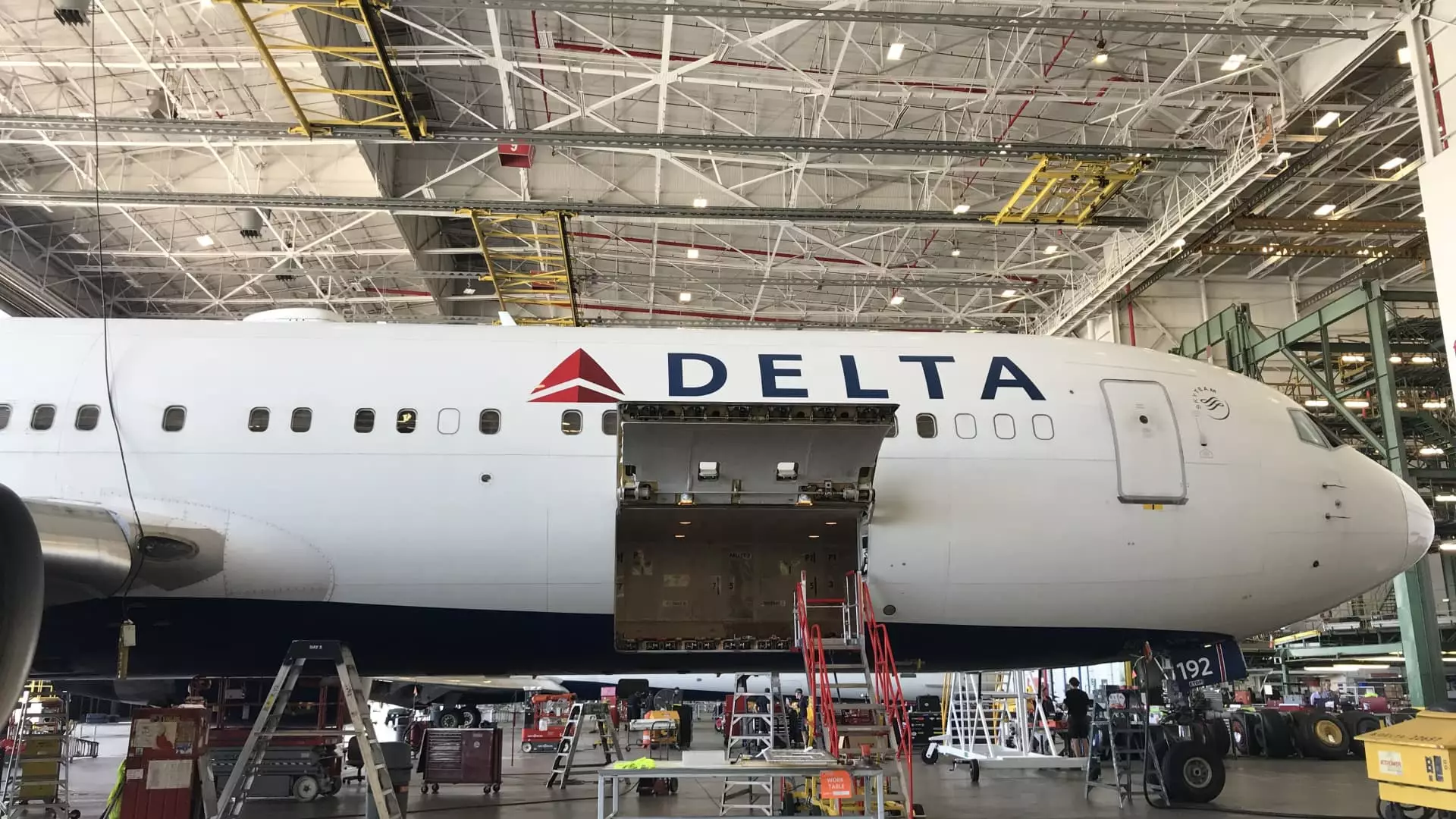Delta Air Lines is gearing up for a potentially prosperous fourth quarter, bolstered by sustained consumer travel demand and a surge in holiday bookings. The company, headquartered in Atlanta, has projected adjusted earnings ranging from $1.60 to $1.85 per share for the fourth quarter, surpassing Wall Street’s estimates of $1.71 per share. This forecast is notably higher than the adjusted earnings of $1.28 per share reported during the same quarter last year. Such projections indicate a remarkable resilience in the travel sector, especially during the peak holiday travel season.
Revenue growth is also anticipated, with estimates suggesting an increase of between 2% and 4% compared to last year, albeit slightly below the expected 4.1% rise from analysts. This positive outlook is crucial as it signals Delta’s ability to navigate the complexities of a post-pandemic market while capitalizing on the growing inclination for travel during the holiday season.
However, not all indicators point to smooth sailing. Delta’s CEO, Ed Bastian, expressed concerns regarding potential volatility owing to the approaching U.S. presidential election. He noted that previous election cycles have often led to consumers exercising caution in their spending decisions. “I think you’re going to hear other industries talking about that as well,” Bastian remarked, highlighting a common trend seen in consumer behavior during politically charged periods. This anticipated dip in demand around the election could detrimentally impact revenue, potentially leading to a 1-point decrease in revenue growth.
As Delta aims to capitalize on holiday travel, it must carefully navigate this precarious period that might dampen consumer enthusiasm for discretionary travel.
Delta’s recent performance still bears the scars of a significant operational challenge—the CrowdStrike outage in July that resulted in a considerable financial blow. This incident saw Delta’s ability to operate efficiently hampered, coming at a hefty cost of $380 million in lost revenue. Adjusted earnings for the third quarter registered at $1.50 per share, slightly trailing analyst expectations of $1.52 per share. The CEO has since indicated that Delta is actively pursuing compensation claims against CrowdStrike and Microsoft for the damages incurred from the outage, a process now resting in the hands of their legal team.
Despite these setbacks, Delta reported a net income increase of 15% compared to the previous year, totaling $1.27 billion for the quarter ending September 30. Revenue showed only a modest uptick of 1%, landing at $15.68 billion, reflecting both the enduring challenges and a cautious rebound in the airline market.
Interestingly, while passenger revenue remained stable, demand for premium offerings such as first-class services has continued to outstrip traditional cabin sales. This phenomenon suggests a significant shift in consumer preferences where travelers may be inclined to prioritize comfort and exclusivity, especially during the holiday rush. This is a pivotal observation for Delta, as it promotes a stronger focus on enhancing premium services aimed at affluent customers.
In response to the dynamics in the domestic market, Delta’s president Glen Hauenstein mentioned that the airline is preparing to expand its capacity by 3% to 4% during the fourth quarter. This strategic move signals Delta’s confidence in its operational recovery and market standing, coupled with a poised approach toward resurgence in travel demand as the economy stabilizes.
Overall, while Delta Air Lines exhibits a promising outlook for growth following a complicated year, it must navigate significant headwinds. Economic uncertainties around the upcoming election, the repercussions from operational mishaps, and evolving consumer behavior in travel preferences all represent critical factors that will influence the airline’s trajectory.
Nevertheless, with strategic adjustments, focused initiatives on premium services, and resilient consumer demand, Delta remains hopeful for a strong performance as it heads toward the end of 2023 and beyond. The outlook for adjusted earnings for the entire year is estimated between $6 and $7 per share, discounting the effects of the CrowdStrike incident, suggesting that Delta’s long-term vision remains steadfast in an ever-evolving landscape.

Leave a Reply